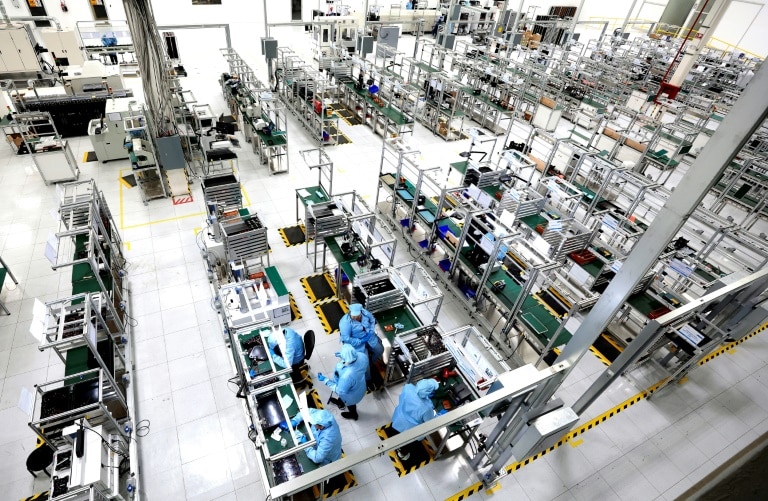Union action at Woolworths distribution centres found to be ‘unlawful picketing’: Fair Work Commission
One of Australia’s biggest unions has responded to orders from a tribunal ordering an end to the “unlawful picketing” of Woolworths, as the grocery giant promises to get its empty shelves restacked.
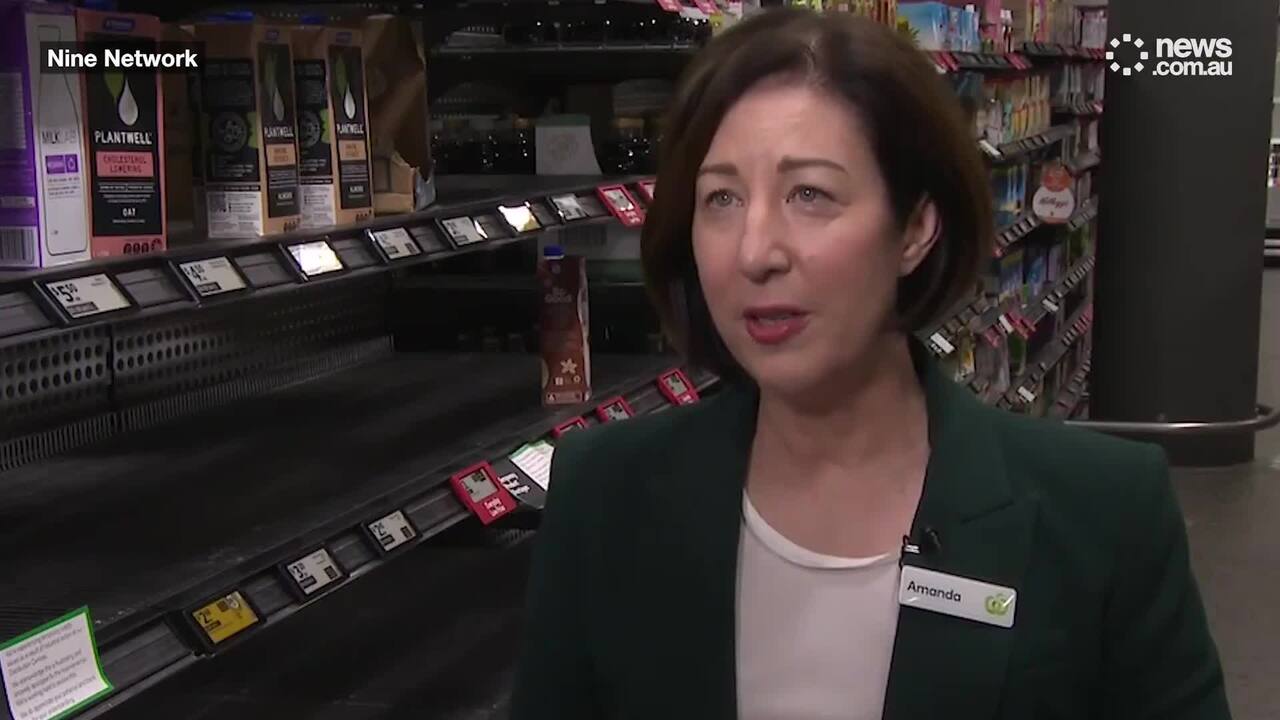
Breaking News
Don't miss out on the headlines from Breaking News. Followed categories will be added to My News.
A handful of picketers have continued to block Woolworths workers from returning to one of its distribution centres, despite a stop order being issued by a tribunal.
Woolworths succeeded in stopping the blockade of the centre after the Fair Work Commission found striking employees were engaged in “unlawful picketing” on Friday.
United Workers Union (UWU) employees had blocked access to a major Melbourne distribution centre for days, over demands for better pay and work conditions.
The UWU was restrained from obstructing or hindering movement at the distribution centres and sent out messages to all members, but picketers some picketers returned to a centre in Dandenong on Saturday.
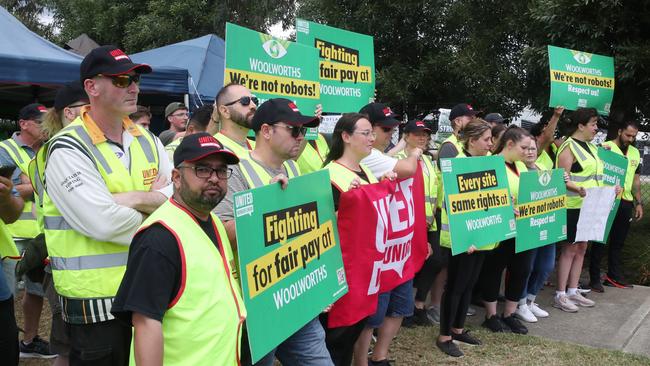
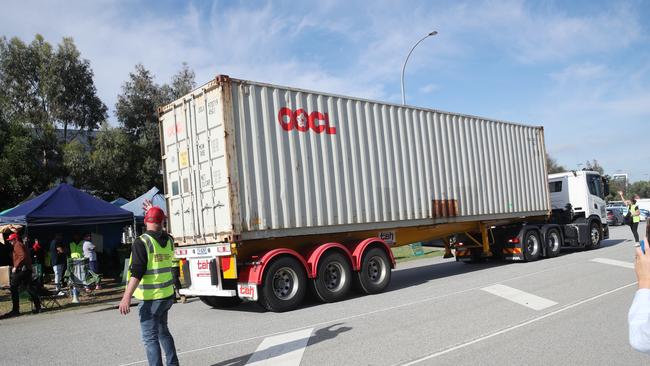
The UWU members at Dandenong South have endorsed Woolies’ offer. The picket is packing up.
— Purplepingers ☠(@purplepingers) December 7, 2024
But by the afternoon, they had endorsed Woolworths’ offer and packed up.
“The only way agreement will be reached and the strike will cease is after members democratically vote on a final position from the company,” UWU National Secretary Tim Kennedy said.
“Workers are not robots and should not be treated like robots. But this is exactly what Woolworths has been seeking to do for thousands of workers across their warehouses.
“I want to say thank you to shoppers across Australia, who continue to support our members and their fight.”
In their own statement, Woolworths Group called for the picketers to stand down so its workers could safely return to the distribution centre after more than two weeks of strike action.
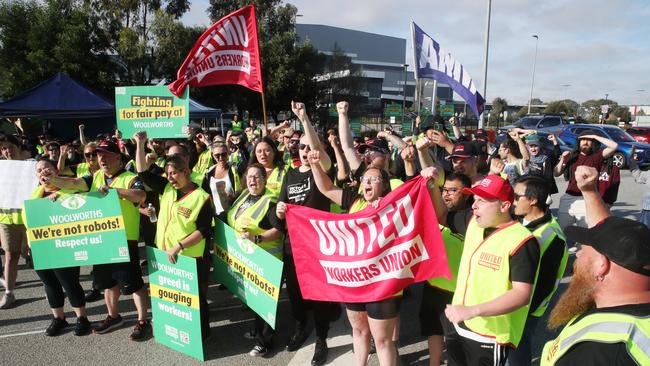
“Despite the Fair Work Commission issuing orders to stop obstructive picketing outside our Melbourne South Regional Distribution Centre in Dandenong, our team members attempting to return to work this morning have again been met by picketers who physically blocked their entry to the site,” a spokesperson said.
“The actions of these picketers are continuing to have an impact on Victorians being able to access essential grocery items such as nappies, drinks and toilet paper from our supermarkets across the state.
“We’re sorry that this disruption has inconvenienced so many of our customers and we are doing everything we can to bring it to an end.”
The dispute has led to empty shelves at supermarkets and bottle shops across Victoria, NSW and the ACT.
On Friday afternoon, Fair Work Commission deputy president Gerard Boyce said he was satisfied the union had been involved in actions beyond protected industrial action.
“The remainder of the evidence unchallenged by the United Workers Union is sufficient for me to make a finding that unlawful picketing … of the distribution centre sites has occurred,” he said.
“I find the UWU is not and has not met its good faith bargaining obligations under the (Fair Work) Act.”
“Accordingly I find it is reasonable to make an order.”
Mr Kennedy acknowledged the commission’s orders.

Woolworths launched the application for an interim order, pending a final hearing, after sending a concerns notice that the union failed to respond to.
Giving evidence, Woolworths’ Scott Paterson said four centres had shut due to safety concerns and staff shortages when the industrial action began on November 21.
He said about 40 per cent of distribution capacity had been impacted – estimated at two million cartons.
Marc Felman KC, for Woolworths, said the UWU was continuing to picket outside four distribution centres operated by Primary Connect, with the company “obviously struggling to get goods to stores”.
Mr Felman labelled it an “obstructive picket” and said it was undermining the collective bargaining process for five distribution centres across Victoria, NSW and Queensland.
“The picketing is interfering with Woolworths’ ability to undertake defensive measures,” he said.
“There’s a substantial amount of workers at the MSRDC (Melbourne south regional distribution centre) that want to go back to work – that’s been prevented by the obstructive picket.”
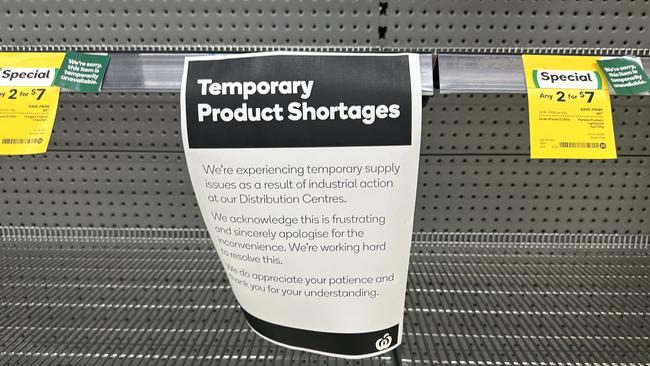
Mr Felman said the action was either preventing, or having the effect of preventing, vehicles and people from entering the distribution centre.
“Woolworths seeks a commitment that the UWU will not impede or obstruct access to the MSRDC,” he said.
“You are allowed to protest peacefully and say don’t go in, what you are not allowed to do is be obstructive about it.”
He said the UWU was operating in a universe with no bearing to reality and Woolworths should be entitled to go to bargaining meetings “without a gun to The Head”.
“The idea that an obstructive picket does not influence the bargaining process, does not put industrial pressure on Woolworths … It’s the whole point of an obstructive picket,” Mr Felman said.
“And there’s not a shred of evidence from the UWU to say that’s not why we’re doing this.”
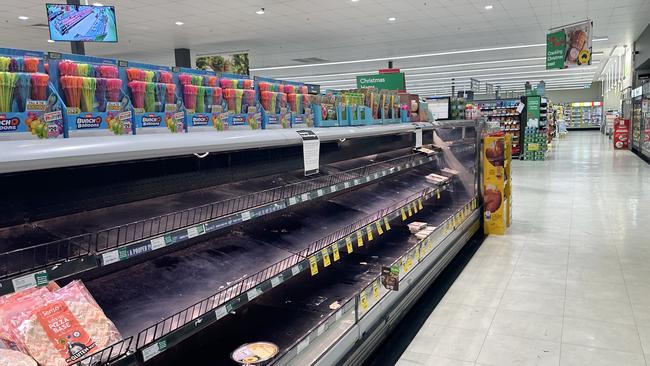
In response, Hugh Crossthwaite for the UWU argued that Woolworths had failed to show any evidence it was suffering a burden from the picketing.
“The union’s position is that the conduct at the MSRDC site does not have an impact on bargaining and therefore cannot be said to undermine it,” he said.
“Again, deputy president, it’s not our case to prove.”
Mr Crossthwaite said negotiations over new enterprise agreements were continuing in a “perfectly orthodox way” and disputed whether the tribunal’s powers to act in this case had been enlivened.
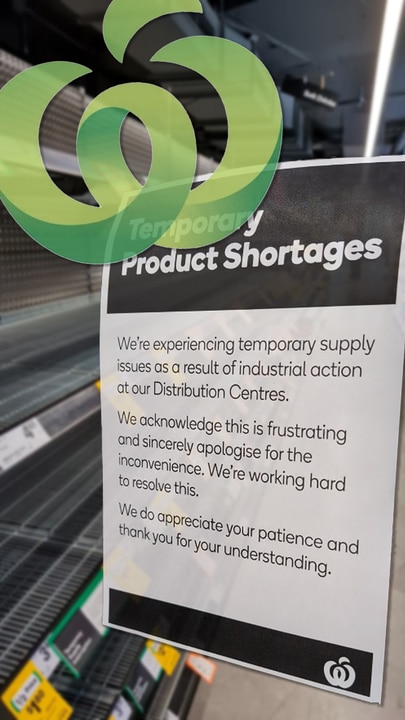
He said, at best, the evidence brought by Woolworths was a “handful of employees” intended to enter the MSRDC on December 2 to perform preparatory work.
Suggesting this was a gun to the head of the supermarket giant, compared with the millions of dollars lost daily through the awful indefinite stoppage of work by union members was “laughable”, Mr Crossthwaite argued.
“The simple cost of the protected industrial action is the reason bargaining processes are occurring,” he said.
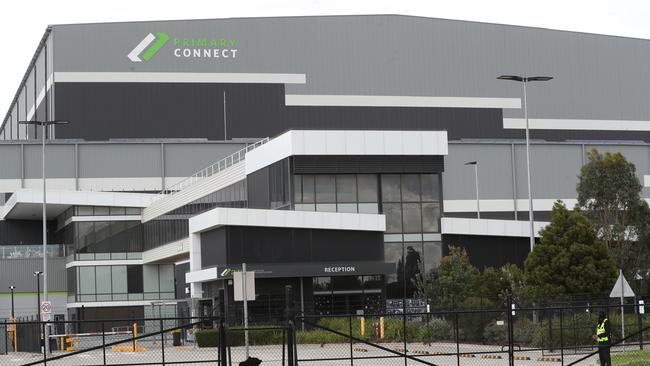
The union launched an indefinite work stoppage after failed negotiations led to more than 1500 workers walking off the job indefinitely for better pay and working conditions.
One union representing workers, the Shop, Distributive and Allied Employees Association, has endorsed a new agreement with Woolworths, but the UWU has expressed concerns about a productivity framework Woolworths is proposing for warehouse staff.
Woolworths Group said its sales had already been reduced by $50m since the start of the industrial action.
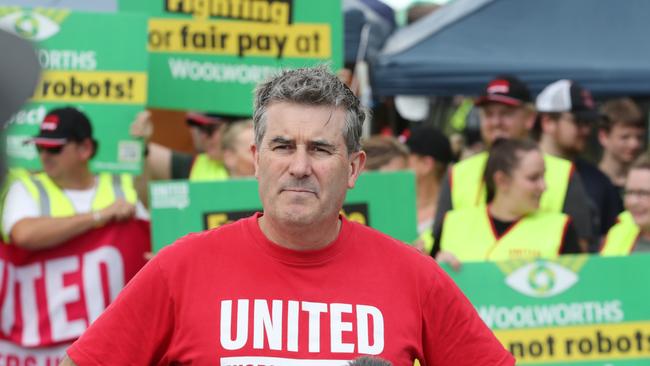
Mr Kennedy labelled Woolworths’ application to the Fair Work Commission a “distraction”.
“The best way to get workers back to work and shelves restocked in time for Christmas is for Woolworths to concentrate on reaching agreement at the bargaining table,” he said.
“Woolworths can fix this today if they focus on negotiating a fair outcome that addresses safety concerns with the framework and provides cost-of-living wage increases.”
Originally published as Union action at Woolworths distribution centres found to be ‘unlawful picketing’: Fair Work Commission



